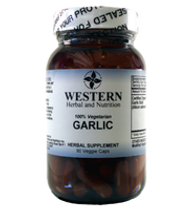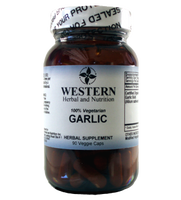What are Herbal Supplements?
Posted by Staff on 20th Feb 2016
Herbals and botanicals have been used medicinally for thousands of years. Once thought of as ‘traditional medicine’ used by native or ancient cultures, herbal medicine has emerged as a popular complementary and alternative medicine, or supplement to modern medicine. The herbal market is growing steadily and herbal and botanical supplements are the leading type of complementary and alternative medicine for both adults and those under the age of 18.
What are Dietary Supplements?
Herbal and botanical supplements are plants used for oral medicinal purposes, and include the flower, leaf, root, and seed of the plant. Herbs and botanicals are sold as dietary supplements, which are regulated differently than pharmaceutical drugs and are sold under the terms: ‘herbals’, ‘herbal products’, ‘herbal medicines’, and ‘herbal remedies’.
Why Take Herbal and Botanical Supplements?
Many consider herbs and botanicals to be natural and therefore healthier and gentler than conventional drugs. Many use herbs and botanicals for a variety of medical conditions, as well as for overall health and well-being. For others, herbal use is grounded in traditions passed down from generation to generation or recommended by folk healers.
Commonly Used Herbs
Garlic - May help reduce the risk of heart disease and lower high blood pressure
Ginger - Commonly used as a digestive aid
Ginseng - May help improve cognitive function and enhance athletic performance
Are Herbals and Botanicals Effective?
Current research shows limited health benefits from taking herbal and botanical supplements, and no conclusive evidence that herbals should be used to treat or prevent any type of medical condition. There is no data to suggest that herbs are more beneficial than conventional drugs for treating illnesses. However, there is enough evidence to support the limited use of herbs and botanicals under the guidance of a medical professional. The body of well-controlled research is growing, but the short-term and long-term benefits and risks, as well as active or beneficial ingredients are still largely unknown.
Are Herbs and Botanicals Safe?
Information concerning herbals and botanicals is constantly changing; therefore take all herbs with caution. Herbs generally are not recommended for people suffering from autoimmune disorders or liver disease, those undergoing surgery or other invasive medical procedure, pregnant or lactating women, or infants and small children under the age of six. Use herbs only for minor conditions and only for the short-term. Discontinue if you experience any adverse side effects.
References
National Center for Complementary and Alternative Medicine (NCCAM). National Institutes of Health. Herbs at a Glance. Available at http://nccam.nih.gov/health/herbsataglance.htm
Natural Medicines Comprehensive Database. Available at http://www.naturaldatabase.com
World Health Organization. Traditional Medicine. Fact Sheet No. 134. Revised Dec 2008. Available at http://www.who.int/mediacentre/factsheets/fs134/en/


